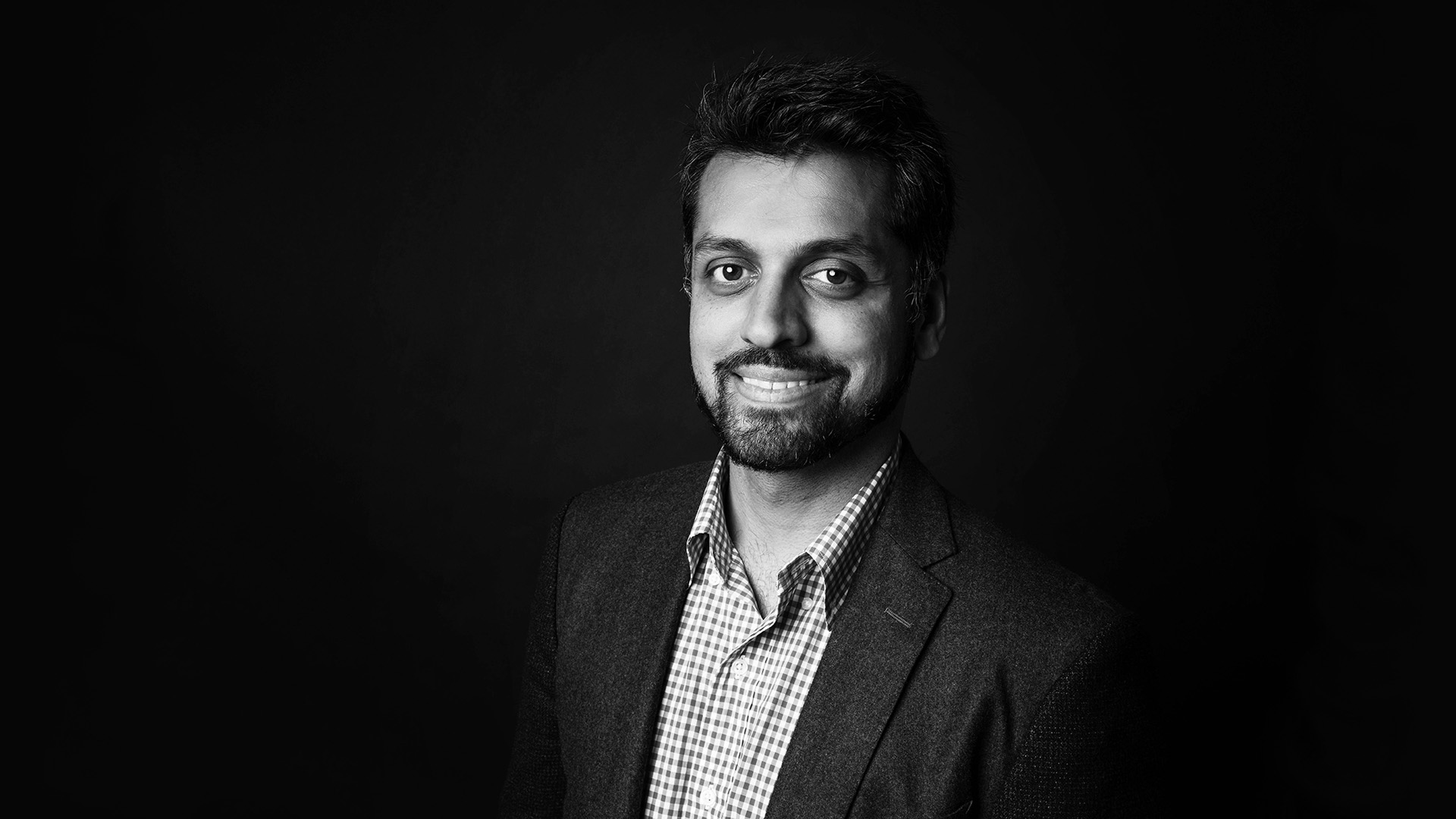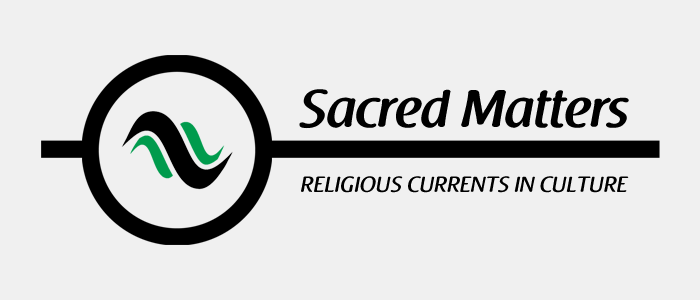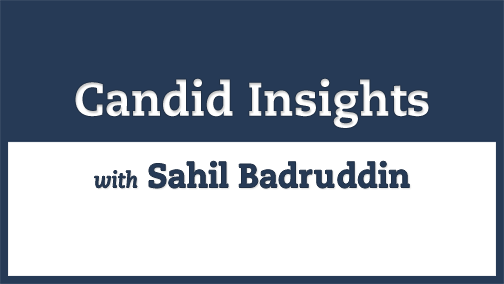Wajahat Ali on Social Media, Echo-Chambers, and Journalism
EDITORS’ NOTE: Wajahat Ali — a journalist, writer, lawyer, an award-winning playwright, a TV host, and a previous consultant for the U.S. State Department under Hillary Clinton — discusses his insights on Social Media, Mainstream Media, Echo Chambers, Journalism, Post-Fact Society, the Perceptions of Muslims, Think-Tanks, and his vision for the Future. Published for Sacred Matters Magazine (affiliated with Emory University’s Center for Digital Scholarship).
Interview Questions
Social Media Bubbles — Time Index: 0:50 (Based on the Audio)
1. Given your extensive work with the media, I wanted to start by quoting a Pew Research study done in 2016, which says: “six out of every 10 millennials get their political news on Facebook, making the 1.7 billion users social behemoth, the largest millennial marketplace for news and ideas in the world. But within Facebook’s ecosystem exists a warning of intellectual biomes created by users whose interest in interacting with opposing political views is nearly nonexistent.”
So this study indicates that social media platforms are becoming, you know, echo chambers and media bubbles where we only get or rather fed news that we want to hear or agree with, that just reinforces our pre-existing perspectives.
As someone who works with and speaks about social media, what have you discovered about this issue?
Influecing Media — Time Index: 6:32
2. In this case, how can groups and individuals positively leverage social media, like you said, in this age, where disinformation and misinformation is so prevalent?
Mainstream Media — Time Index: 11:15
3. Just to step back a bit, do you find that even the mainstream media can be its own bubble, a media bubble, if you will?
Increasing Media Bubble — Time Index: 17:04
4. Do you see these kinds of media bubbles increasing?
Time Index: 20:14
5. So today, this phenomenon has sometimes even been termed as a post-fact society where, you know, individuals not only feel entitled to their opinions, but to their own facts. But how do you think we can actually recognize that we’ve wrapped ourselves in bubbles? How do we break free from them?
“The Domestic Crusaders” Play — Time Index: 23:57
6. So you wrote a play on, “The Domestic Crusaders,” which was actually the first major play on American Muslims post 9/11. Could you speak about your experience and how it was able to help change stereotypes of Muslims?
Advice for Those in Media — Time Index: 30:25
7. Any advice or ideas for those who want to start their own plays, TV shows and movies with the purpose of changing perceptions of Muslims?
Sharing Stories — Time Index: 34:57
8. There was. There was also a short video you created on Islam through the Huffington Post titled, “Long Story Short.” This was summarizing key misunderstood aspects within Islam. And, you know, there’s also other videos that have been created on, for example, “The Secret Life of Muslims.”
So how effective are these? And is there any particular approach you found to be more effective in this video space in changing perceptions?
Time Index: 38:40
9. On these personal stories, you co-edited, “I Speak for Myself: 45 All American Men on Being Muslim,” which was sharing these individual personal stories. What suggestions would you give to people to be more vocal and courageous, creative in sharing their voices? Not just Muslims, but also Muslims.
Muslims to Muslims Relationships — Time Index: 41:44
10. If I talk about intrafaith, Muslim to Muslim relationships, how can Muslims further support each other in externally challenging times?
Minority Groups — Time Index: 45:50
11. So you know, historically, and even today, in the United States, disadvantaged and minority groups have come together to form lobbies and think-tanks, in order to politically advance their goals and create a favorable rapport with other communities.
How can these think-tanks, going back to this notion of media and social media, better leverage social media, and other similar outlets in today’s world (because I feel sometimes they’re not as effective as they can be)?
Advice on Journalism — Time Index: 50:27
12. You mentioned journalism, any advice for those who want to pursue journalism? And here I mean, without, you know, having any preconceived agenda or bias, but are actually in the minority when it comes to the media.
Vision for the Future — Time Index: 55:40
13. You know, thinkers and writers often reflect about a vision for the future. Could you name a specific objective, perhaps, you see the world achieve, let’s say, in 25 to 50 years? And what insights and suggestions would you offer that might help them achieve this vision?
About Wajahat Ali
Wajahat Ali is a journalist, writer, lawyer, an award-winning playwright, a TV host, and a consultant for the U.S. State Department. As Creative Director of Affinis Labs, he works to create social entrepreneurship initiatives that have a positive impact for marginalized communities, and to empower social entrepreneurs, young leaders, creatives, and communities to come up with innovative solutions to tackle world problems. Beginning in early 2017, Affinis Labs will launch a global startup incubator network, aimed at identifying and fostering “emerging entrepreneurial talent from around the world that understands what makes the global Islamic economy special.”
Previously, Ali helped launch the Al Jazeera America network as co-host of Al Jazeera America’s The Stream, a daily news show that extended the conversation to social media and beyond. He was also a National Correspondent, Political Reporter, and Social Media Expert for Al Jazeera America. He focused on stories of communities and individuals often marginalized or under-reported in mainstream media. Ali is also the author of The Domestic Crusaders—the first major play about Muslim Americans, post-9/11—which was published by McSweeney’s and performed off-Broadway and at the Kennedy Center. Currently, with Dave Eggers, Ali is writing a television show about a Muslim American cop in the Bay Area. Additionally, he is a Peabody-nominated Producer of the series The Secret Life of Muslims. He was also the lead author and researcher of “Fear Inc., Roots of the Islamophobia Network in America,” the seminal report from the Center for American Progress.
In 2012, Ali worked with the U.S. Department of State to design and implement the “Generation Change” leadership program to empower young social entrepreneurs. He initiated chapters in eight countries, including Pakistan and Singapore. He was honored as a “Generation Change Leader” by Sec. of State Clinton as an “Emerging Muslim American Artist” by the Muslim Public Affairs Council. Ali has given many presentations, from Google to the United Nations to Princeton to The Abu Dhabi Book Festival. His writing has appeared in The New York Times, the Atlantic, the Washington Post, the Guardian, and Salon. He regularly appears on CNN to discuss politics and current affairs.



